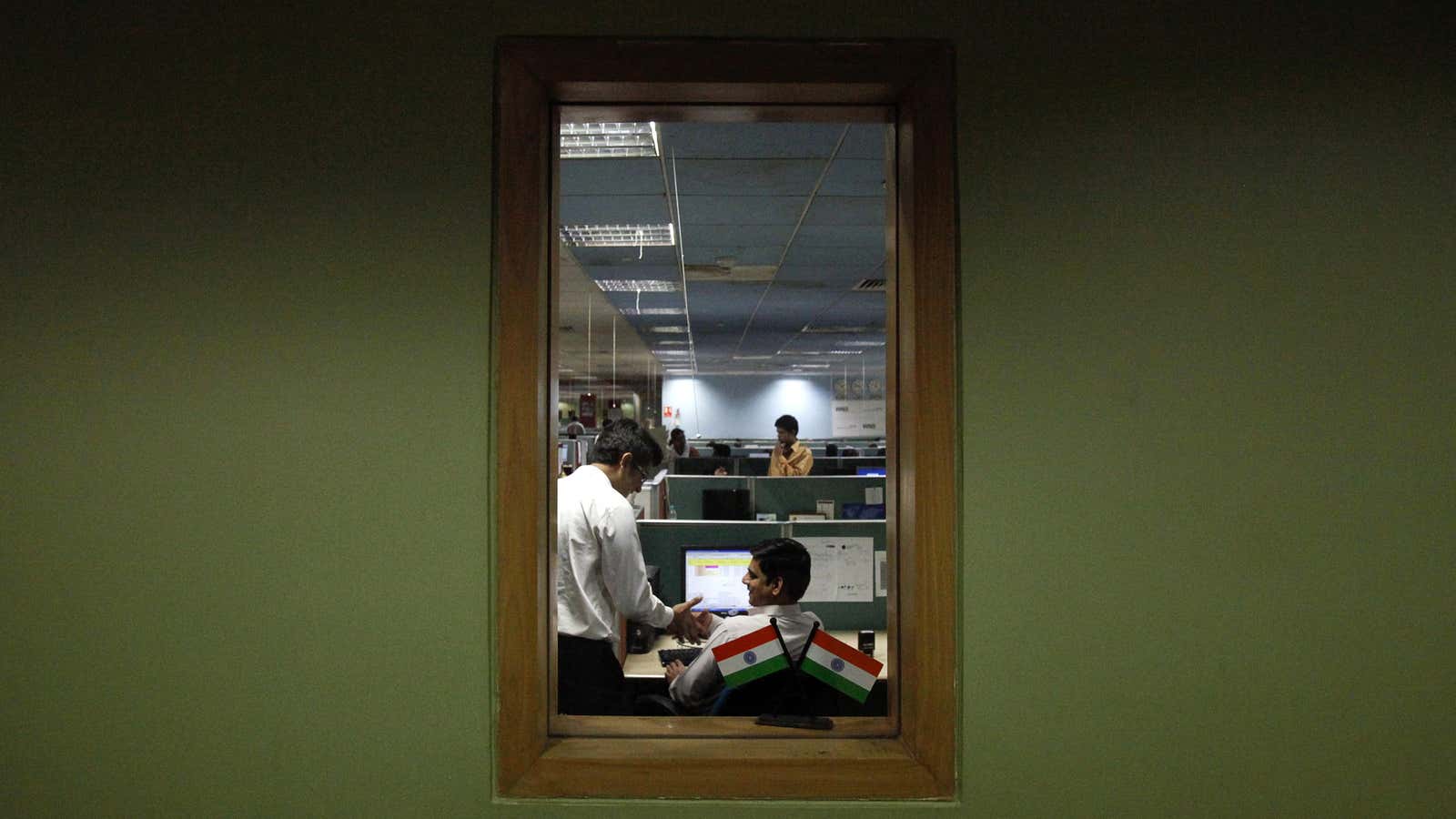At the workplace, Indian millennials are faced with more than just simple work pressure.
More than 40% of respondents to an online survey by a Harvard Business Review digital learning platform said that excessive workload was the main barrier to efficiency at the workplace. Office politics, cited by just over 39% of respondents, was a close second.
Harvard Business Review (HBR) Ascend surveyed approximately 1,700 people aged between 18 and 34 from various industries in India to understand the challenges they encounter at work. Among millennials, “the more tenured group (aged between 25-34) felt that excessive workload is their top barrier (42.92% respondents), while the younger millennials (18-24 years) identified office politics (42.39% of the respondents) as the main pain point,” Vivek Chachra, India manager, Harvard Business Publishing, noted in a press release. The workload was a bigger concern for men, while it was office politics for women, the survey found. It is important to note, however, that women represented a smaller proportion (22.17%) of the entire pool.
Moreover, though most Indian millennials are equipped with technical skills, the survey suggests that they lack four key building blocks for a successful career: emotional intelligence, stress management, persuasion, and analytical thinking. Only 13% of the respondents thought they displayed emotional intelligence at work. A dismal 8% felt analytical thinking “is an area of strength for them,” and a meagre 4.5% “agreed that they had the persuasion skills needed to be successful at the workplace,” the survey noted.
In systems plagued by rote learning, academic excellence has always been the top, if not the only, priority. Consequently, soft skills have taken a backseat at schools and higher education institutes in India. And HBR Ascend isn’t alone in noting such a deficit. Studies by the Federation of Indian Chambers of Commerce and Industry and global management consultancy Hay Group have found that a lack of soft skills has impeded communication, self-awareness, and self-management among India’s workforce.
And the struggle is likely to worsen as office landscapes change.
“Soft skills like empathy, emotional intelligence, and persuasion will be even more critical as workspaces become more dynamic and machine-human interplay rapidly evolves,” Amit Aggarwal, senior vice-president of learning & development at Genpact, a global business process management and services firm, said in a statement.
